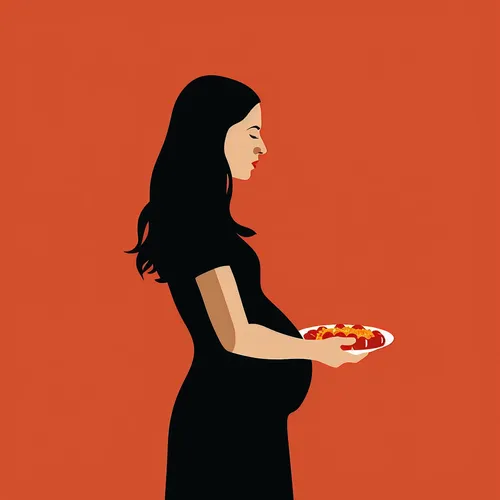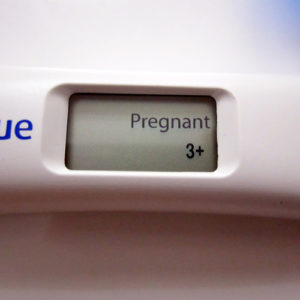Everyone knows there are certain foods you need to avoid after you have become pregnant, but what about before? The answer may surprise you. Just as there are a lot of foods that are great for helping you improve your fertility, there are also those that aren’t as good.
Simple Carbohydrates
If you’ve looked into diet and nutrition at all, you may be familiar with the glycemic index. This is a range of numbers that tell you how certain foods will impact your blood sugars. Low glycemic food won’t cause a sharp increase in your blood sugars, while high glycemic foods can spike blood sugar levels.
The highest glycemic foods are things such as cake, white bread, pasta, white rice, and beverages like soda. Studies show that cutting out these foods can improve your fertility by 5 times what it was before.
Swap Refined Grains for Whole Grains
In addition to limiting simple carbohydrates, choose whole grain options over refined grains whenever possible. Whole grains like brown rice, quinoa, oats and whole wheat bread provide more nutrients and fibre compared to their refined counterparts. They have a lower glycemic index, meaning they don’t spike blood sugar as dramatically.
Refined grains are stripped of the bran and germ, which removes much of the fibre, vitamins and minerals. In contrast, whole grains retain these nutrient-rich components. Fibre helps regulate blood sugar and keeps you feeling full longer. B vitamins, magnesium and zinc found in whole grains are essential for hormone production and reproductive health. Making the switch to whole grains is a simple way to optimise your fertility diet.
A low carb diet will help you improve your health, and increase your chances of a healthy baby. Limiting carbohydrate intake can help regulate insulin levels, which in turn can minimise issues like polycystic ovarian syndrome (PCOS). PCOS is one of the most common causes of infertility in women.
Trans Fats
In order for foods containing fat to be shelf stable, they need to be transformed into a type of fat called “trans fats.” These fats may be great for shelf life, but they are terrible for your health. A Harvard study found that if just 2% of your calories came from trans fats instead of good fats such as monounsaturated fat, it doubled your risk for ovulation related infertility. If these fats replaced carbohydrates, the chance of having this type of infertility issue increased 73%.
Trans fats are also bad for your heart and vascular system, too much can lead to plaque build up which restricts blood flow to the reproductive system, compromising fertility even more. For the best chance at getting pregnant, cut trans fats from your diet as much as possible. This goes for the men too. Trans fats can reduce sperm quality.
Trans fats are found in many processed and deep fried foods like chips, pastries, biscuits, and fast food. Check nutrition labels and avoid anything with “partially hydrogenated oil” in the ingredients list. Healthier fats like olive oil, avocados, nuts and seeds are great alternatives.
Canned Foods
Eating healthy is part of creating a healthy baby, but don’t reach for that extra serving of canned vegetables without checking the label. BPA is often used in the lining of canned food, and a recent study linked it to as much as 20% of unexplained fertility issues.
It works by disrupting the human reproductive system. It can cause infertility and also increase the risk of birth defects such as Down syndrome. You should still eat fruits and vegetables, but choose fresh or frozen instead, or read the label to see if it is BPA free.
The best options are fresh fruits and vegetables that haven’t been exposed to preservatives or stored in plastics. Buying local, seasonal produce can help ensure freshness and reduce your exposure to chemicals used in processing and packaging. Washing produce thoroughly is also important to remove any pesticide residues.
Soft Drinks
If you are a fan of fizzy drinks, you might not want to hear that some studies have suggested that some soft drinks might be linked to fertility problems. The case has not been proven either way, but you might want to stick to water as a healthy option when trying to get pregnant.
The high sugar content in soft drinks can lead to insulin resistance and inflammation, both of which are detrimental to fertility. The acidity of carbonated beverages may also disrupt the pH balance needed for conception. Even diet soft drinks with artificial sweeteners have been linked to fertility issues in some studies. When trying for a baby, plain water is the best thirst quencher.
Peas
Who would have thought vegetables could be so dangerous? Peas are one veggie you should skip if you want to increase your chances of getting pregnant. A chemical found in peas called m-xylohydroquinone is effective in reducing pregnancy by as much as 60%. It’s so effective, it is being studied to see if it can be made into a natural contraceptive.
Thanks to the popularity of soy free and vegetarian foods, pea protein is added to a surprising number of foods, so check labels carefully before you indulge.
Some great vegetarian protein alternatives to peas include beans, lentils, chickpeas, quinoa, nuts, seeds, eggs and dairy. These provide many of the same nutrients without the fertility-reducing effects. If you do choose to eat peas, have them in moderation as part of a varied diet. The negative impacts seem greatest when pea products are a major protein source.
Getting pregnant doesn’t have to be difficult, by knowing what to avoid, you can greatly improve your chances of getting pregnant and delivering a happy, healthy, baby.
Photo credit; “Pregnant” by Anthony Cunningham for Zoom Baby
Zoom Baby is a leading supplier of Pregnancy Tests and Ovulation Test Kits





